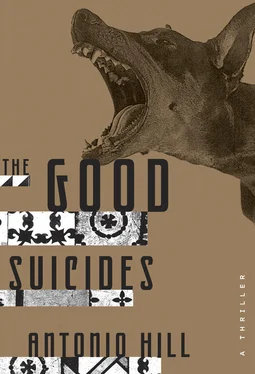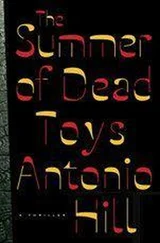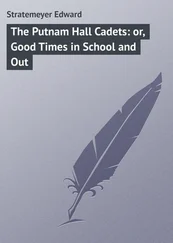Antonio Hill - The Good Suicides
Здесь есть возможность читать онлайн «Antonio Hill - The Good Suicides» весь текст электронной книги совершенно бесплатно (целиком полную версию без сокращений). В некоторых случаях можно слушать аудио, скачать через торрент в формате fb2 и присутствует краткое содержание. Жанр: Триллер, на английском языке. Описание произведения, (предисловие) а так же отзывы посетителей доступны на портале библиотеки ЛибКат.
- Название:The Good Suicides
- Автор:
- Жанр:
- Год:неизвестен
- ISBN:нет данных
- Рейтинг книги:5 / 5. Голосов: 1
-
Избранное:Добавить в избранное
- Отзывы:
-
Ваша оценка:
- 100
- 1
- 2
- 3
- 4
- 5
The Good Suicides: краткое содержание, описание и аннотация
Предлагаем к чтению аннотацию, описание, краткое содержание или предисловие (зависит от того, что написал сам автор книги «The Good Suicides»). Если вы не нашли необходимую информацию о книге — напишите в комментариях, мы постараемся отыскать её.
The Good Suicides — читать онлайн бесплатно полную книгу (весь текст) целиком
Ниже представлен текст книги, разбитый по страницам. Система сохранения места последней прочитанной страницы, позволяет с удобством читать онлайн бесплатно книгу «The Good Suicides», без необходимости каждый раз заново искать на чём Вы остановились. Поставьте закладку, и сможете в любой момент перейти на страницу, на которой закончили чтение.
Интервал:
Закладка:
Finally he’d made an impression on Sílvia Alemany. The bitter tone couldn’t be ignored. And Héctor understood the moment had come to bet, albeit cautiously, so that she didn’t guess how low the cards in his hand were.
“Returning the bicycles was a mistake, Sílvia. A silly mistake. Not like you.”
She seemed absorbed in thoughts that had nothing to do with that, and everything to do with her family.
“The bicycles were intact. There were no si-” Sílvia went quiet, but it was already too late and Héctor finished her sentence for her.
“There were no signs of the accident, were there?”
“What accident?” she asked in a voice much less sure.
“The accident that happened when you were returning from burying the dogs.” The bluff was working, Héctor could feel it. “I think you came back in a good mood, self-satisfied, from the completed task. I don’t think you expected destiny to play a dirty trick on you. And to tell the truth, I honestly think the first act of this farce was a genuine accident. Am I right?”
Sílvia Alemany no longer had the courage to continue denying it. She closed her eyes, inhaled very slowly and began talking.
40
The eight of them contemplate their work with the satisfaction that comes from having done something real, with their hands, based on real physical effort and sweat. A feeling to which they are in fact unaccustomed because their jobs have little to do with that.
“Done,” says Brais with a sigh, as he rubs his hand. He is the one who has dug the most and he knows that the following day he’ll have blisters all over his hands from the hoe, but the physical effort seems healthy. Invigorating.
The only trace of those mercilessly sacrificed animals is the newly turned earth a hundred meters from the tree. Without them, the branches of the cork tree revert to being inoffensive, vulgar. Dusk bathes the landscape in a comforting, placid light.
“Are we going now, or do you expect us to say a prayer?” asks César. He’s the only one who appears immune to the general feeling of well-being. In fact, he agreed to dirty his hands only reluctantly, when he saw the vote was lost anyway. Only Manel had objected to the idea and César didn’t like to associate with losers.
Octavi smiles and Sílvia looks sideways at her fiancé. César shuts up.
“Why don’t we get going?” Manel intervenes. “It’s almost night.”
“Why don’t we wait a moment?” suggests Sara. “There aren’t many opportunities to enjoy a sunset like this one.”
César is tired and wants to go back to the house, but once again the others seem in agreement. And in fact, all of them, him included, watch the sunset on the mountains, partly because it is beautiful, and partly because they’re too tired to move or argue. The sun descends behind the peaks, slowly, effortlessly, quenching its orange-colored shine and leaving the world in shadow.
“Well, that’s it,” says Brais quietly. “It’s been a long day.”
They walk toward the van, fatigued but happy. The task and the twilight have satisfied them. A euphoric, contagious peace overwhelms them.
“I’ll drive,” says Sílvia, and César, who had driven them there, throws her the keys. “I like driving at night.”
They make themselves comfortable in the van, which has two rows of three seats as well as the driver and passenger seats: Sílvia driving and Octavi beside her; the others are arranged on the two rows behind. She puts on some music before starting the engine and they all seem to feel as young and free as the song proclaims.
“I love it,” says Sílvia. “Now my brother can’t hear us, I think it’s the best of the campaign.”
There is a general laugh: it’s unusual to hear the Alemanys criticizing each other, although there’s been a rumor going around that their relationship isn’t the best at the moment.
Sílvia turns the key and the van begins to move. They feel happy and not at all tired.
“Hey!” César protests after a corner that throws them all to one side. “Careful. The damned spade is sticking into my ribs.”
“César, don’t be a spoilsport. We’re nearly there. Put the song on again, Octavi. It cheers me up.”
And Sílvia accelerates, because all of a sudden she feels like she did when she was young and rebellious, and she hasn’t experienced a feeling like this in years. She accelerates, not taking into account that visibility isn’t good, and neither is the road. She accelerates because she doesn’t think she’s going to encounter any obstacle to brake for on this lonely road.
They’re almost there; the lights can be made out in what would otherwise be a black field. Those sitting behind don’t even see what happens. They just hear Octavi’s sudden warning, an abrupt swerve and a dull thud. The van stops at the side of the road, opposite the gate of the track leading to the house.
“What was that?” asks Amanda.
No one answers. Octavi gets out of the vehicle and approaches a shape on the ground. Except it’s not a shape, or an animal. The overturned bicycle beside him confirms it. César tries to follow him, but the spade, leaning against the seat, is blocking his way, so with an impatient gesture he tosses it outside to be able to get out. More agile, Brais gets there before him once again. And the three men look at the Arab boy, the wound bleeding from his temple, covering Octavi’s hand with blood when he tries to sit him up.
“Don’t touch him!” exclaims Brais, but it’s clear from Octavi’s face that it no longer matters.
“Shit … fuck.” César scuffs the ground and for once his protests seem justified.
“It was the wing mirror,” says Brais, pointing at the van’s mirror.
They look at each other, not knowing what to do, and César returns to the vehicle, head down. He walks slowly and approaches the driver’s side. Sílvia lowers the window and looks at him and knows by the expression on his face that something serious has happened. She sighs and covers her face with her hands.
Amanda and Manel have already got out of the vehicle, but they’re not moving, as if there, stuck to the van, they might be safe. Gaspar and Sara do the same, she with her cell phone in her hand.
“We have to call an ambulance. Or the police. I don’t know.”
“Don’t call anyone. Wait a moment,” César orders and continues speaking to Sílvia in a low voice.
The world seems to have stopped on that section of dark, gloomy road. They no longer feel young and free, but anxious and frightened. The silence of the fields, pervaded by unknown murmurings, is unsettling.
“I don’t want to see him,” says Manel. “I can’t bear blood.”
He takes the path toward the house, at top speed, fleeing it all.
“Yes,” says César. “Go into the house. Go on, Gaspar, go with Sara and Amanda. And don’t call anyone. We’ll take care of this ourselves.”
They understand that he wants to be alone with Sílvia, who is still inside the vehicle, and Octavi. Maybe even with Brais.
Gaspar picks up the spade from the ground, the one César threw from the van, and starts to walk. Sara and Amanda go after him; they move a little out of their way so as not to pass close to the body, although Amanda can’t help a quick glance.
And then, once again, the unexpected happens. They hear a shout from the patio of the house, and a cry of alarm that can only be coming from Manel. Sara and Amanda stop, frightened, and Gaspar, with the spade in his hand, runs toward those shadows thrashing on the ground. The next thing that is heard is an intense, metallic thud.
The crunch of a skull as it cracks.
“What happened then?” asked Héctor, shocked despite himself.
Читать дальшеИнтервал:
Закладка:
Похожие книги на «The Good Suicides»
Представляем Вашему вниманию похожие книги на «The Good Suicides» списком для выбора. Мы отобрали схожую по названию и смыслу литературу в надежде предоставить читателям больше вариантов отыскать новые, интересные, ещё непрочитанные произведения.
Обсуждение, отзывы о книге «The Good Suicides» и просто собственные мнения читателей. Оставьте ваши комментарии, напишите, что Вы думаете о произведении, его смысле или главных героях. Укажите что конкретно понравилось, а что нет, и почему Вы так считаете.












